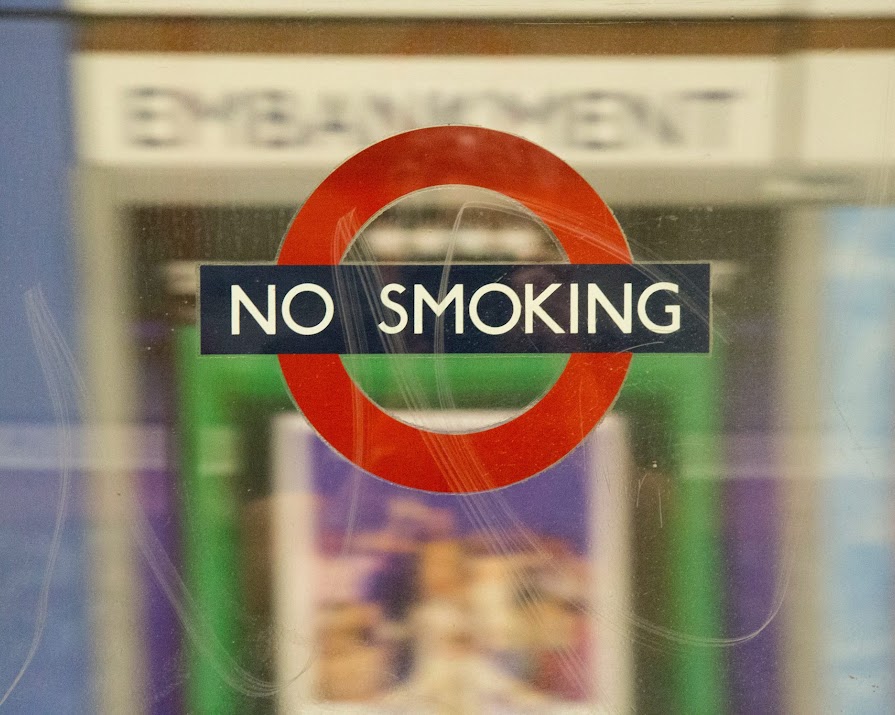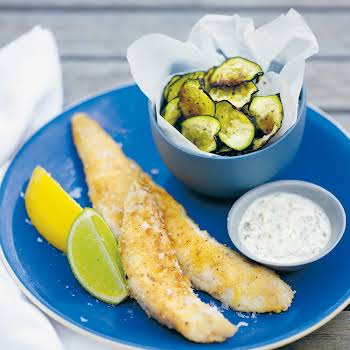By Grace McGettigan
13th Mar 2019
13th Mar 2019
Almost 6,000 Irish people die from smoking every year; that’s 16 preventable deaths per day.
It doesn’t have to be this way. Whether you’ve been smoking for years, or only smoke socially, we want to help you quit. Today, March 13, is #NoSmokingDay. We spoke with Dr Seamus Linnane, Consultant Respiratory & General Physician at the Beacon Hospital for his expert advice on how to quit smoking for good.
Here he tells us exactly what cigarettes do to our bodies; tips for quitting; how to manage cravings, and more. Quitting certainly isn’t easy, but it can be done at any age. You’re never too old to stop.
What’s in a cigarette?
Each cigarette contains over 4,000 toxic chemicals; including 69 cancer-causing carcinogenic chemicals, as well as over 400 other toxins.
Some chemicals found in cigarettes include carbon monoxide (car exhaust fumes); arsenic (rat poison); ammonia (a cleaning chemical); acetone (used in nail polish remover); sulfuric acid (found in car batteries); and, of course, nicotine, one of the most addictive substances in the world.
 Photo by Pawel Czerwinski on Unsplash
Photo by Pawel Czerwinski on Unsplash
What happens to our body when we smoke
Tobacco use is the leading cause of preventable death in Ireland, with almost 6,000 smokers dying from tobacco-related diseases every year. What’s more, 95% of lung cancer cases are caused by smoking or second-hand smoke; which shows smoking doesn’t just damage your own health, but that of the people around you too.
Visually
Smoking has some obvious side-effects when it comes to how we look. It can cause our skin to lose its elasticity and moisture, leading to fine lines and wrinkles. Our skin can also appear grey, with broken veins across our cheeks; while our teeth and fingers can become discoloured.
Related: Hawaii considers raising
the legal smoking age to 100
Dr Linnane says, “That skin analogy is really interesting because a lot of those symptoms also happen inside the body.”
Damage is done inside and out
Just as our outsides become discoloured and damaged, so too do our insides. “When you walk into a smokey room, a lot of people would describe it as ‘irritant’,” Dr Linnane explains. “When that irritant gets into the lungs, it can cause a lot of local inflammation, and that inflammation is what causes you to cough.”
Then, mucus starts to develop, which causes you to cough further. Not only that, but our lungs also become grey; losing their healthy, pink appearance.
The danger of carbon monoxide
Cigarettes contain carbon monoxide, which “blocks oxygen from binding to your blood”. This can make it more difficult to breathe; and in turn, can make simple things (such as walking or climbing stairs) more strenuous and uncomfortable.
Heart disease and heart attack
Smoking damages the lining of your arteries, which can lead to a build-up of fatty material. Not only does this make it more difficult for blood to pass through, but the carbon monoxide in cigarette smoke forces your heart to pump harder to supply the body with the oxygen it needs. For both of these reasons, smokers are almost twice as likely to have a heart attack compared with people who have never smoked.
 Anastasia Vityukova on Unsplash
Anastasia Vityukova on Unsplash
Feel the difference
Not only will quitting improve your life expectancy, but you’ll start to notice a difference almost immediately. Here’s a breakdown of benefits, hour-by-hour.
After 20 minutes: Your blood pressure and pulse rate return to normal, and circulation improves in your hands and feet.
After eight hours: Oxygen levels in the blood return to normal and your chance of heart attack starts to fall.
After 24 hours: Poisonous carbon monoxide gas is eliminated from your body. Your lungs start to clear out mucus and other debris.
After 48 hours: Nicotine is no longer detectable in your body. What’s more, your senses of taste and smell begin to improve.
After 72 hours: Breathing becomes easier as the bronchial tubes relax, and your energy levels start to increase.
After two weeks: Your circulation improves even further, making walking and other exercises easier.
After three to nine months: Coughing, shortness of breath and wheezing are reduced dramatically.
After five years: Your risk of heart attack falls to that of a non-smoker.
After 10 years: Your risk of lung cancer falls to half that of a smoker.
 Photo by Radu Florin on Unsplash
Photo by Radu Florin on Unsplash
Advice for quitting
The process of quitting is different for everyone. It’s important you find what works best for you.
Dr Linnane’s first piece of advice is to find support. It doesn’t necessarily have to be at home; there are lots of free and confidential supports out there. Visit quit.ie or freephone the National Smokers’ Quitline on 1800 201 203 to speak with trained counsellors for non-judgemental, expert advice.
What’s more, Dr Linnane says there’s no pressure to go cold-turkey either. If you feel like you need something more than willpower, invest your cigarette money in quitting tools. Nicotine patches, gum, oral spray, lozenges and inhalers are all readily available from pharmacies nationwide.
If you’re still finding it tough, it’s worth speaking with your GP about the prescription treatments available to you.
It’s okay to fall off the wagon
Finding it tough? Remember it’s okay to fall off the wagon. Dr Seamus Linnane reminds us that quitting is a journey, and it’s rare for people to quit successfully on their first go. “Most people who have successfully quit smoking had already tried quitting before,” he says.
If you’ve tried to quit in the past and found it hard, don’t be afraid to try again. Take it one day at a time and give yourself credit for how far you’ve come. Even one less cigarette per day is a step in the right direction.
Managing cravings
“Cravings are quick,” Dr Linnane tells us. “Most cravings will pass within a couple of minutes.” With that in mind, try to come up with ways to distract yourself for those two minutes, until the craving subsides.
“Have a glass of ice water,” Dr Linnane suggests, or “walk up and down the stairs”. Other people find brushing their teeth helps, while some take a puff of their Nicorette inhaler.
Find something you enjoy, something that fits into your daily routine; be it listening to your favourite song, doing a quick word-search or puzzle. You’ll soon find you’re getting through the cravings without needing to smoke at all.
For confidential advice, call the National Smokers’ Quitline on 1800 201 203, where trained counsellors are on-hand to help, or visit www.quit.ie
Top photo by Lex Guerra on Unsplash
More like this:






















